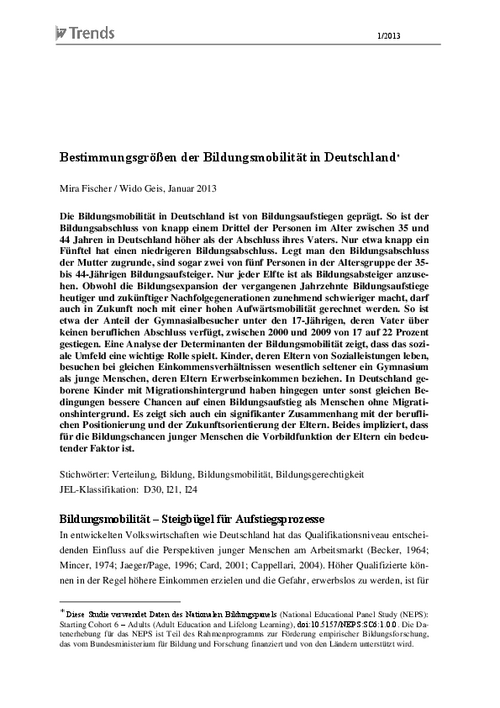Educational mobility in Germany is largely upward. Nearly a third of those aged between 35 and 44 have obtained higher educational qualifications than their fathers. Fewer than a fifth have a lower qualification. Taking their mother’s level of formal education as the benchmark, as many as two fifths of those aged 35–44 are upwardly mobile. Only one in eleven can be regarded as losing ground. Although the expansion of education in recent decades will make it increasingly difficult for the present and succeeding generations to maintain this trend, high upward mobility can be expected to continue into the future. For example, between 2000 and 2009 the proportion of high school students among those seventeen-year-olds whose father had no formal vocational qualification rose from 17 to 19 percent. An analysis of the factors determining educational mobility shows that social environment has a significant influence. Even when the family income is similar, a lower proportion of children whose parents depend on welfare benefits attend a high school than of those whose parents are in paid employment. By contrast, other factors being equal, children born in Germany to immigrant families have better chances of being educationally upwardly mobile than those without a migration background. Upward mobility also correlates significantly with professionally ambitious and forward-looking parents. This implies that the parental role model is an important factor in young people’s educational success.
Download | PDF


